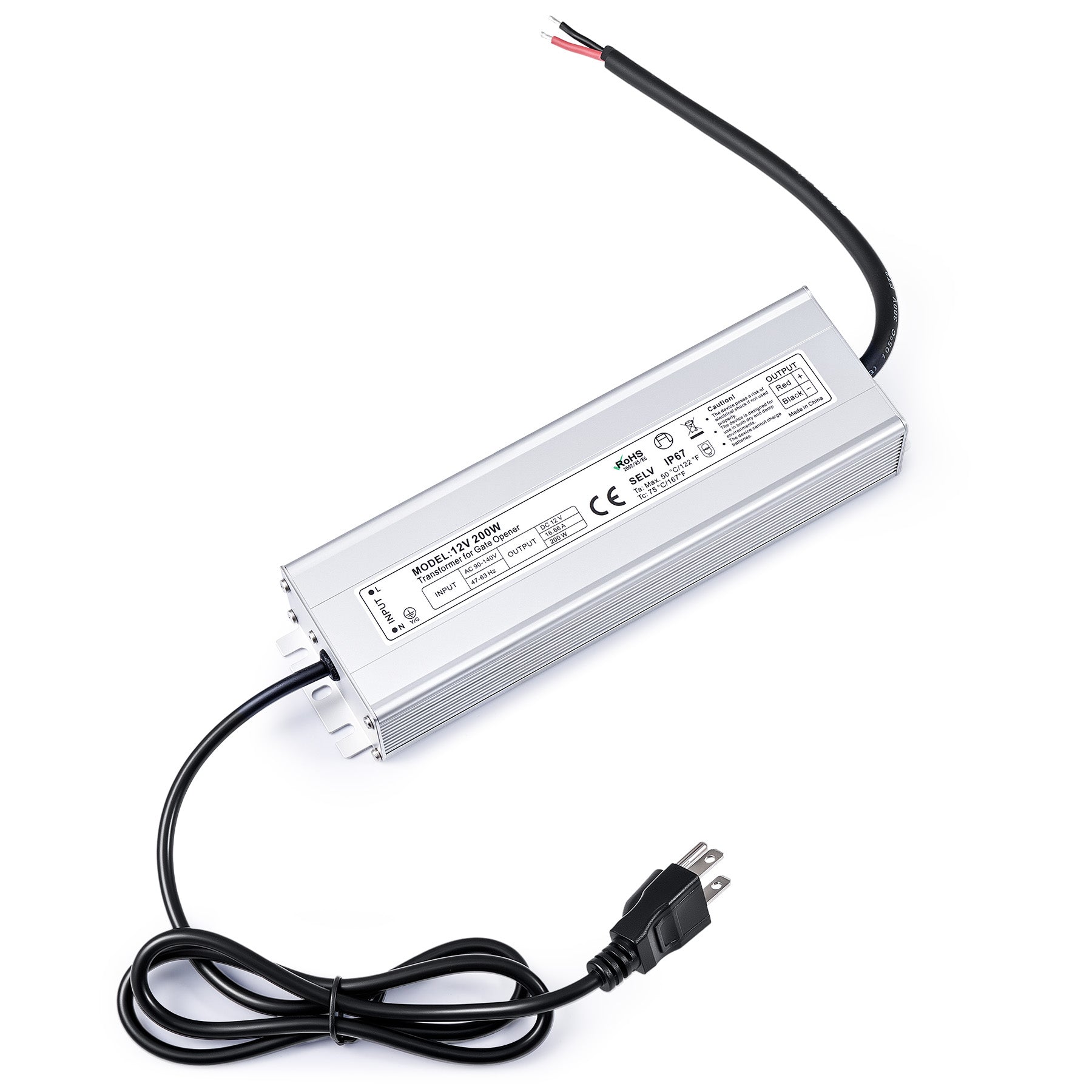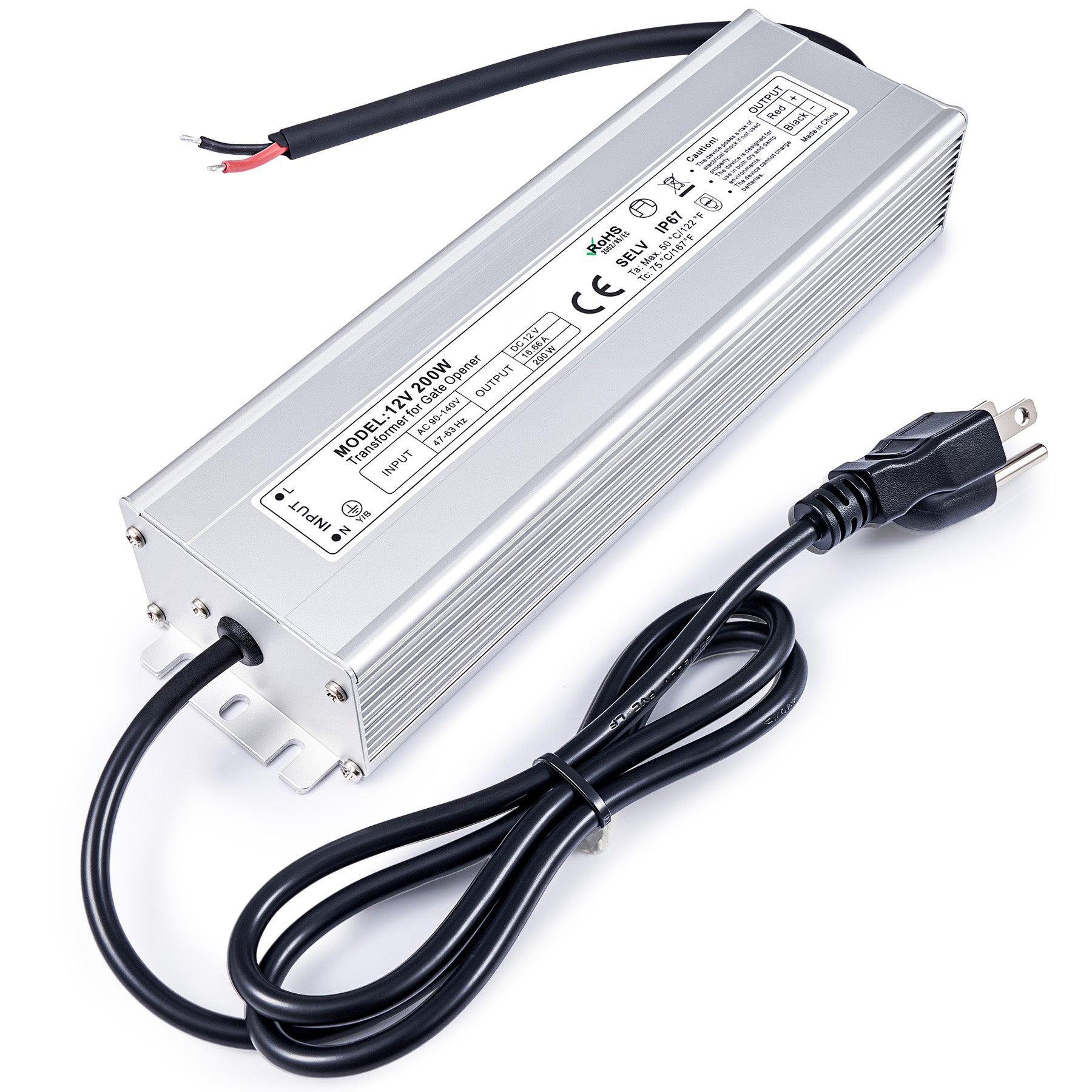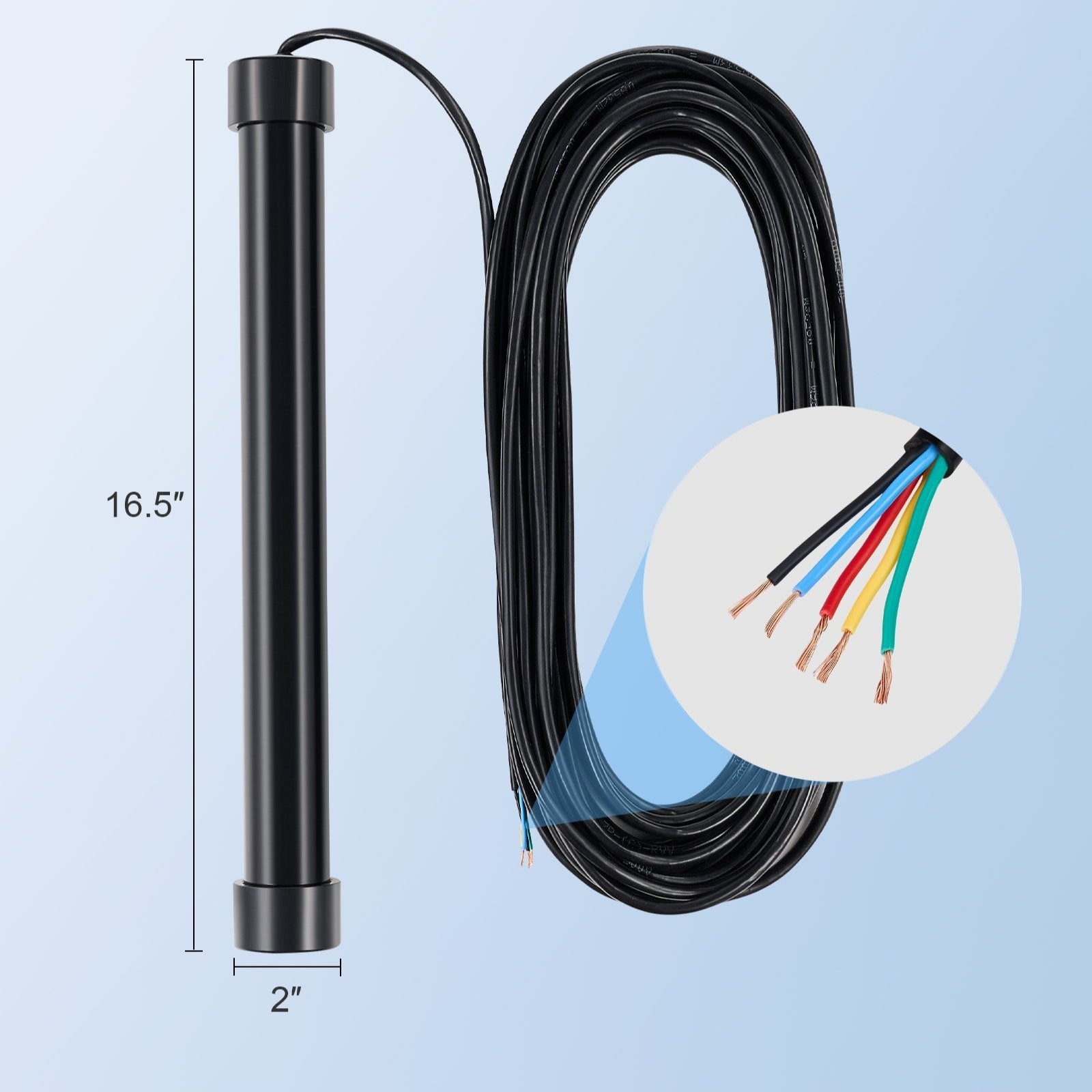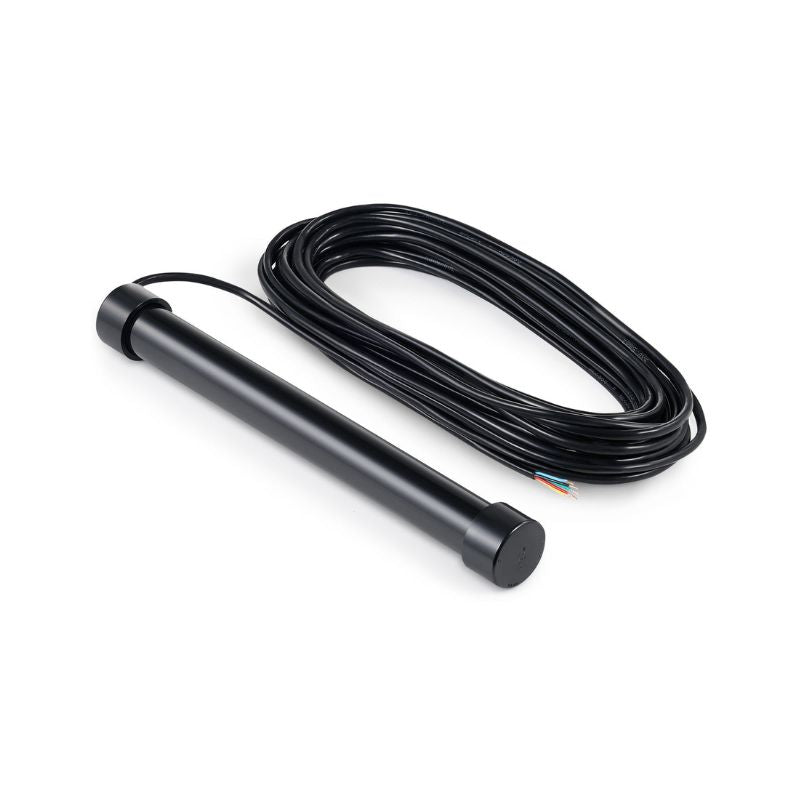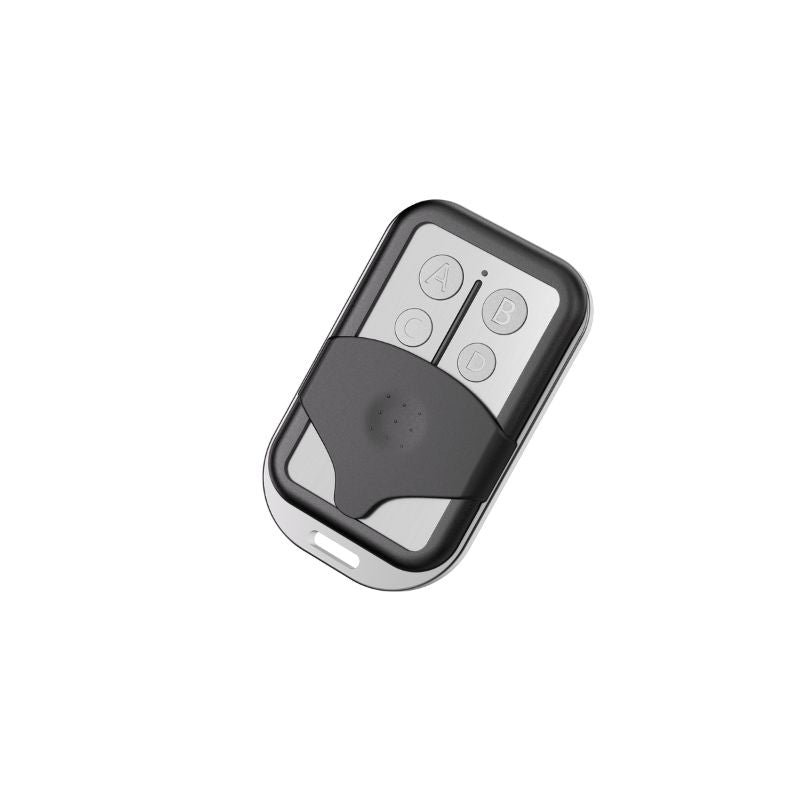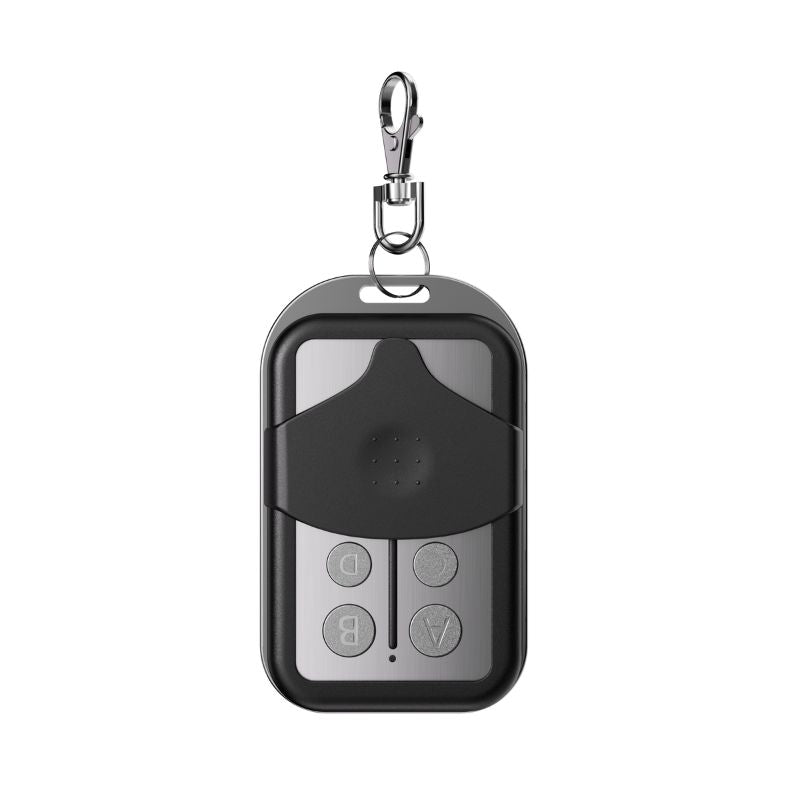If given the option between solar-powered gate openers and electric gate openers, most people’s first instinct would be to choose solar gate openers: they are just as effective as electric gate openers and are also better for the environment. But while the idea of getting an automatic gate opener that is eco-friendly is appealing( and important), it is equally important to consider that solar gate openers are not superior to electric gate openers, at least not in every scenario. There are some particular instances where it would be better to go for an electric gate opener.
So, let's discuss six important questions to ask yourself before buying a solar gate opener, some instances where an electric gate opener would be better, and some suggestions on which automatic gate opener would suit your needs better.
Q1. Is Your Gate Well Exposed to Sunlight?
The most crucial factor to consider before buying a solar gate opener is to make sure your gate is well exposed to the sun and receives enough sunlight. The average solar panel needs about four to five hours of exposure to direct sunlight in order to generate sufficient electricity. If your gate is big and heavy, your panel will require even more sunlight in order for the battery to be charged efficiently. So, before buying a solar gate opener, take some time to assess your property’s climate and sunlight patterns.
Assessing Your Property’s Sunlight Patterns
First, your gate must be located in an area that receives ample sunlight, and second, there must not be any shading to prevent the rays from hitting the gate. This is really important, especially if you live in an area that is surrounded by trees, buildings or other structures.
Also, if you live in a region prone to cloudy or rainy weather, an electric gate opener might be a better option for an automatic gate opener, especially during winter months when daylight hours are shorter.
What if You Are Not Sure?
If sunlight exposure is a concern, consider moving the panels, and placing them in a spot with the best possible sunlight. There is no rule that says the solar panel(s) must be located near the gate. You can move it to a well exposed area, then use an extended cable to connect it to the motor.
Consider a Hybrid Option
Some property owners also opt for hybrid systems, which means the gate operates with both solar and grid power, providing added flexibility during low-sunlight periods. Gate openers like the one from Zumi can accommodate three power sources, one being the main and the other two for backup. If solar energy is your main source, switch to battery or electricity when sunlight cannot be counted upon.
Q2. How Busy Does Your Gate Get?
The frequency with which the gate is opened and closed in a day is a critical factor when considering a solar gate opener. Most solar powered systems are generally built for lighter to moderate residential use. If the gate keeps getting opened and closed frequently, the power demand may exceed what the solar panel and battery system can reliably supply, especially during less sunny months.
This is very important if you are considering a solar gate opener for a busy commercial property or a home with multiple family members coming and going throughout the day.

What To Do In Case of High Traffic
The good news is that there are heavy-duty solar gate openers specifically designed to carry heavy gates in areas where the gate might be opened and closed frequently. So, always check the specifications of the solar gate opener to ensure it’s designed for frequent use.
Some systems are built for heavy-duty performance, you can check the Zumi WS2 Solar swing. It comes in two versions, one for a single swing gate, the other for a double swing gate. Both models can support gates up to 1100 llbs, and come with a complete solar gate opener kit which involves a panel, two solar batteries and other relevant material for installation.
Q3. What is the Type and Weight of Your Gate?
The type and weight of your gate can significantly affect the performance of a solar gate opener, so not every solar gate opener can handle every kind of gate. Solar gate openers come in various models tailored to different gate types, from lightweight residential gates to large, commercial ones. The size and weight of your gate will tell you what size solar gate opener you need.
Checking the Specifications of the Solar Gate Opener
Before purchasing, check the specifications of the solar gate opener to ensure it can handle the weight of your gate. Remember that sliding and swing gates have different power demands, so it’s essential to select an opener model that matches both the gate type and weight. Investing in the appropriate model will help ensure reliable performance and minimize wear and tear on the motor.

Q4. How Good is the Battery, and Are There Backup Options?
Solar gate openers rely on batteries to store the energy collected from sunlight, and this stored powered is what allows the gate to operate even at night or on cloudy days. Higher-capacity batteries can store more energy, which is useful if you use your gate frequently or live in an area where sunlight is not consistent. If you live in a state like South Dakota or Oklahoma, where the weather varies frequently, you need a strong, formidable battery for your solar gate opener.
What Makes a Good Solar Battery?
Consider the expected lifespan of the battery, as most solar gate opener batteries need replacing every 3–5 years. The longer the lifespan, the better the battery.
- Also, think about the potential for adding a backup battery or integrating a secondary power source, like grid electricity.
- Again, we are going to stress the importance of choosing a solar gate opener with a battery backup. You have to be able to switch to grid power when solar power is insufficient.
- If in doubt about the quality of the battery, choosing a system with adequate battery capacity and backup options ensures greater reliability and reduces the risk of power interruptions.
Q5. What Are the Installation and Maintenance Requirements?
Generally speaking, a solar gate opener is simpler to install than a wired electric gate opener system. However, installation logistics still play an important role. First, they don’t need to connect to the power grid, in terms of placement, a solar gate opener is more flexible. So, an important part of the installation process might be to ensure the solar panels are positioned in an area that receives optimal sunlight and that they’re securely mounted to avoid issues with wind or weather damage.
Other Considerations Beyond Installation
Maintenance is generally low for solar systems, but occasional cleaning of the solar panels is necessary to remove dirt, debris, or snow that could block sunlight.
Batteries may also require periodic checks to ensure they’re functioning optimally.
Factoring in these installation and maintenance considerations will help keep your system running smoothly and extend its lifespan.

Q6. Is it Really Cost-Efficient?
Solar gate openers are cost-effective over time, they often come with higher upfront costs than electric openers. The main reason for that is the added expense of the solar panel(s) and battery system. In the long-run, however, you can balance out this initial cost by the long-term energy savings solar power provides, as you won’t be paying for electricity to operate the gate.
Is An Electric Gate Opener Worth It?
An effective way to determine whether it is worth investing in a solar gate opener is to weigh the long-term savings against the initial investment and potential maintenance costs like battery replacement.
If your primary goal is to reduce electricity expenses and you live in a sunny region, a solar gate opener can offer significant savings over time.
However, if your area lacks reliable sunlight, you might need a hybrid system, which will likely still save you some money, but reduce the cost-effectiveness of going solar. You might want to choose an electric gate opener in this latter case.
Making Your Final Decision
There are, of course, other factors to consider when deciding on whether or not to get a solar gate opener, but these six are arguably the most crucial. The key, if you are going for a solar gate opener is to pick one that has a backup power source, comes with a strong and capable solar panel and a formidable battery, and comes from a trusted supplier like Zumi.
Zumi’s gate openers feature a sleek silver finish and a sturdy design that combines beauty with durability.
With an IP55 weatherproof rating, these gate openers withstand rain and dust and offer long-lasting performance. Customers have especially been impressed by the Zumi W2 Pro Gate Opener line, which includes both solar and electric models.
Capable of withstanding any temperatures between -4 to 122F, they come specially equipped for an all-year-round performance. The electrical components are sealed tight, and the design ensures that all vulnerable components are installed safely.
Zumi provides a wide range of gate openers for private homes, public institutions, and commercial establishments worldwide. From single-swing to dual-swing to solar gate opener models, Zumi’s collection contains reliable, top-quality gate openers with features and characteristics that optimize security. The Zumi Gate opener app can be integrated with the home system, taking security to a new level.


